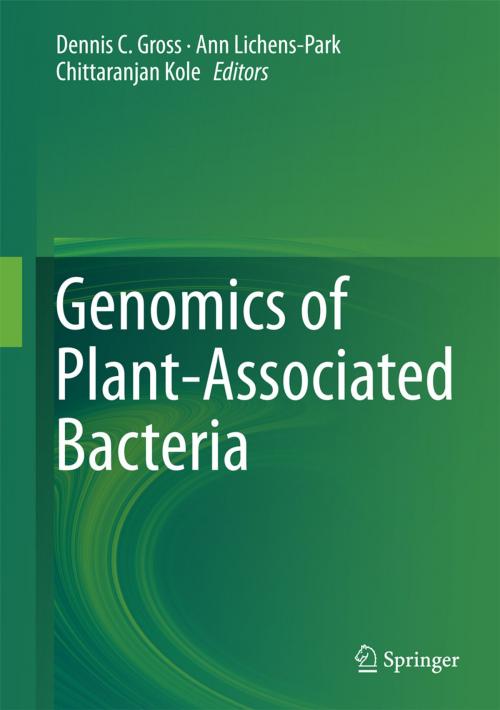Genomics of Plant-Associated Bacteria
Nonfiction, Science & Nature, Science, Biological Sciences, Microbiology, Technology, Agriculture & Animal Husbandry| Author: | ISBN: | 9783642553783 | |
| Publisher: | Springer Berlin Heidelberg | Publication: | June 16, 2014 |
| Imprint: | Springer | Language: | English |
| Author: | |
| ISBN: | 9783642553783 |
| Publisher: | Springer Berlin Heidelberg |
| Publication: | June 16, 2014 |
| Imprint: | Springer |
| Language: | English |
This book describes how genomics has revolutionized our scientific understanding of agriculturally important plant-associated bacteria. Each chapter focuses on the genomics of particular bacteria: the first described plant pathogen, Erwinia amylovora; phytoplasmas lacking cell walls; fastidious, phloem-restricted liberibacters; Pseudomonas syringae, which is a genetically tractable model system; Xanthomonas citri, which causes a disease that can devastate citrus crops and Pseudomonas fluorescens, which can protect plants from diseases.
Topics considered in this volume include the importance of horizontal gene transfer in originating new bacterial strains and species and advances in transcriptomics that allow us to describe the complex regulatory networks critical to plant-microbe interactions. The availability of the Xanthomonas oryzae genome has led to new technologies in genome editing, which will revolutionize approaches to genetic engineering, even in eukaryotes. The contributions show how genomics has greatly accelerated progress toward understanding the biology of these bacteria and how that understanding can be translated into novel crop protection methods.
This book describes how genomics has revolutionized our scientific understanding of agriculturally important plant-associated bacteria. Each chapter focuses on the genomics of particular bacteria: the first described plant pathogen, Erwinia amylovora; phytoplasmas lacking cell walls; fastidious, phloem-restricted liberibacters; Pseudomonas syringae, which is a genetically tractable model system; Xanthomonas citri, which causes a disease that can devastate citrus crops and Pseudomonas fluorescens, which can protect plants from diseases.
Topics considered in this volume include the importance of horizontal gene transfer in originating new bacterial strains and species and advances in transcriptomics that allow us to describe the complex regulatory networks critical to plant-microbe interactions. The availability of the Xanthomonas oryzae genome has led to new technologies in genome editing, which will revolutionize approaches to genetic engineering, even in eukaryotes. The contributions show how genomics has greatly accelerated progress toward understanding the biology of these bacteria and how that understanding can be translated into novel crop protection methods.















